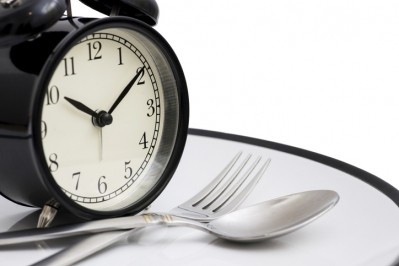What are the drawbacks of fasting?

For centuries, voluntary fasting has been practiced by the devout from many religions to get closer to enlightenment. Now, it’s a dieting trend.
Some studies have linked intermittent fasting to weight loss, while another links it to living longer.
Fasting can indeed be beneficial, in some cases decreasing blood pressure and insulin resistance and even boosting heart and brain health.
However, the effects of fasting aren’t always positive. Two studies suggest that fasting does have downsides. While the studies are not on humans and more research needs to be done, they nevertheless suggest that for fasting, not everything is clear cut.
Increase in cancer risk?
A recent study on mice shows that during the post-fast feast, rather than the fast itself, stem cells would surge to repair the intestines of the participating mice.
However, this came with a catch. The surge in stem cells meant that the mice were more likely to develop precancerous polyps (abnormal growth that forms on the inner lining of an organ) on their intestines if a cancer-causing gene was activated than if they’d abstained from fasting. In the study, intestinal stem cells multiplied the fastest in mice given food after a fast.
During fasting, stem cells start burning fat instead of carbohydrates. This leads to their heightened ability to perform tasks like repairing mouse intestinal damage. But because intestinal stem cells divide constantly, they can also be a source of precancerous cells.
According to biogerontologist Valter Longo, increased cancer risk in mice with altered genes does not extend to other animals. Does this also mean it won’t hold true for humans? The researchers plan to find out.
What stops fasters from losing weight?
Sometimes, weight loss while fasting doesn’t happen as quickly as one might expect. This, a new study suggests, may be down to a molecule that signals the brain to slow fat loss when no food is available.
The study looked at a roundworm called Caenorhabditis elegans (C. elegans), which loses fat more slowly the more it eats. The study found that fasting communicates more information that just caloric withdrawal to the brain of this roundworm.
The brain controls the breakdown of fats, which in the instance of the roundworm the breakdown is triggered by a brain hormone named FLP-7. However, in order for this production to begin the gut must signal the brain, and the roundworm in question does not have sensory nerves in its intestines. Thus, the researchers wanted to know how the gut signals the brain when metabolic changes in the gut take place.
They removed more than 100 signalling molecules from the worm and measured the effect each one had on the brain's production of FLP-7, finding that INS-7, a form of insulin, had a significant effect. INS-7 is made by gut cells, and has an impact on fat metabolism vita the brain.
Unlike most insulins, this molecule was not activating but blocking the brain’s insulin receptors, leading it to stop producing FLP-7.
The same molecule has not yet been studied in humans, so conclusions are tentative. However, the researchers suggest that this could be the answer to the question of why the benefits from fasting are independent from the number of calories consumed.
Sourced From: Nature
'The surprising cause of fasting’s regenerative powerss'
Published on: 21 August 2024
Doi: https://doi.org/10.1038/d41586-024-02700-2
Authors: M. Kozlov
Sourced From: Nature Communications
'A homeostatic gut-to-brain insulin antagonist restrains neuronally stimulated fat loss'
Published on: 11 August 2024
Doi: https://doi.org/10.1038/s41467-024-51077-3
Authors: C. Liu, A. Khan, N. Seban, N. Littlejohn, A. Shah & S. Srinivasan























